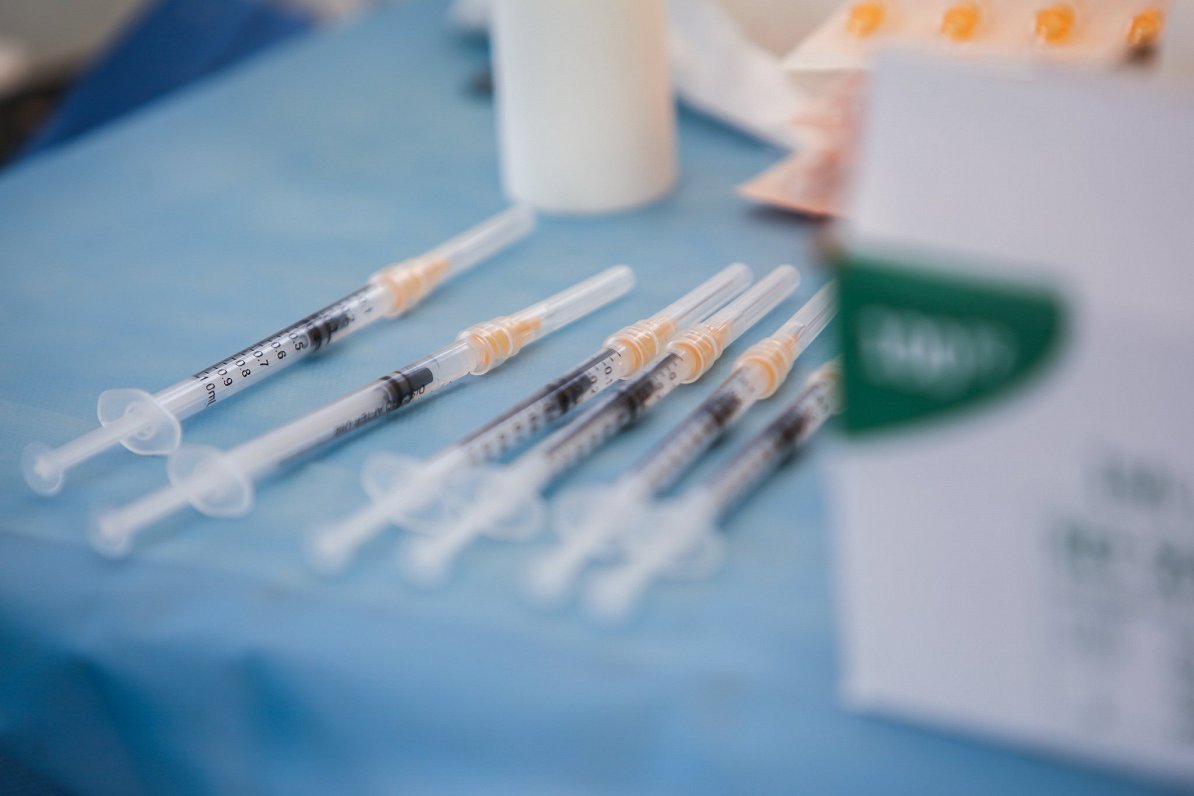The Covid-19 vaccines developed by Pfizer and AstraZeneca are very effective against the Indian strain of the virus after two doses. This was revealed in a new study in England, which found that these vaccines could be even more effective in preventing hospitalizations and deaths.
Study: Pfizer and AstraZeneca vaccines are effective against the Indian variant of Covid-19Rihards Plūme00:00 / 03:04
—
As it turned out in the new study, both Pfizer and AstraZeneca two doses of the vaccine provide similar levels of protection against symptomatic diseases caused by the Indian strain. Efficacy has been shown to be lower when only one dose of Pfizer or AstraZeneca is given. Three weeks after the first dose of the vaccine, the effectiveness was only 33%, compared with the Kent or UK variant, against which the effectiveness was 50% after the first dose.
A study by the English Public Health Organization indicates that doses of these vaccines are likely to be even more effective in preventing hospitalization and deaths. However, the authors of the study did not evaluate, for example, the effectiveness of the ‘Moderna’ vaccine against the Indian strain, because the number of people who received the vaccine in the UK is too small to be included in their studies.
The Indian variety is considered particularly infectious. It is estimated that several thousand people have been infected with the Indian strain in Britain, raising concerns about the possibility of lifting almost all restrictions on public life from 21 June. However, the government continues to insist that this will be possible.
Health Minister Matt Henkock said the findings made him “increasingly confident” about the introduction of the final phase of easing in England, scheduled for June 21. He emphasized that the data showed that obtaining both doses of the vaccine was “absolutely vital”. Interior Minister Priti Patela also welcomed the data, but added that developments should be followed.
Although the Indian variant is still being studied, experts believe that this could be the cause of the huge virus outbreak in India.
Since May 9, the number of people infected in India has gradually started to fall. The nationwide has seen the lowest number of infections in the last 24 hours in about a month – more than 240,000. More than 3,700 people have died.
The Indian capital, Delhi, one of the hardest hit in India, plans to begin easing restrictions on strict quarantine next week if the number of people infected in the city continues to decline.
However, the situation remains difficult and many states maintain their existing quarantine regimes, raising concerns about the economic impact.
The head of the Indian Medical Research Council said this month that high-incidence states must remain closed for another six to eight weeks to break the chain of the virus.
CONTEXT:
The World Health Organization already indicated bythat approved vaccines are effective against all types of Covid-19, but travel abroad is not yet safe.
–
Highlight text and press Ctrl+Enterto send the text to be edited!
Highlight text and press Report a bug buttons to send the text to be edited!
–
–


